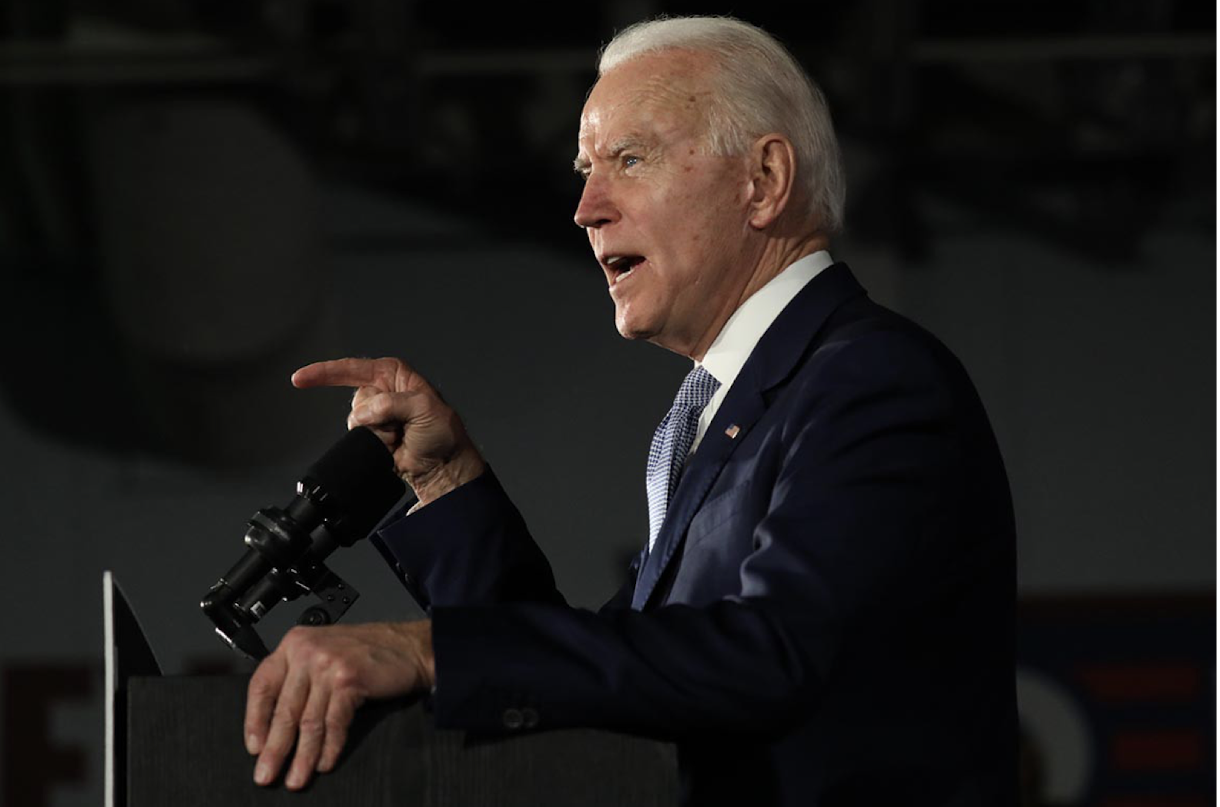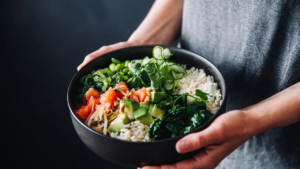Police brutality has spurred young African Americans to take to the streets. But it’s far from clear they’ll go to the polls.
In late January, Black Lives Matter commissioned eight focus groups of young black voters in swing states to drill down on a problem for Democrats since Barack Obama left office: why they weren’t excited to vote. One black man from Philadelphia told a pollster that his mother and grandfather had voted over the years, and “all of them got nothing. So why should I participate in the same process?”
The focus groups were conducted before unrest swept the country in response to the killing of George Floyd at the hands of police. It also preceded the outbreak of a pandemic that’s ravaged the country and an economic downturn that’s left more than 40 million unemployed.
At the center of all three crises are black Americans.
In response, Democrats have urged African Americans to channel their frustrations into voting. But for younger black voters, many of whom are protesting in dozens of American cities, that requires trust in a system that they believe has done little for them or their families. Joe Biden is struggling to connect with young voters, particularly those of color, according to public and private polling — a serious problem for the former vice president that started during the presidential primary.
POLITICO Dispatch: June 5
America is facing a trio of crises that are disproportionately hitting black people: police violence, coronavirus and a flailing economy. It’s a moment that could help Democrats galvanize disillusioned young black voters — but could also further alienate them.
This week’s demonstrations are an inflection point for the Democratic Party that could engage these voters or further alienate them from the political process, according to more than a dozen Democratic pollsters, strategists, organizers and lawmakers. The difference-maker for Democrats in November, they said, isn’t whether President Donald Trump will peel off a small proportion of black men as he’s trying to do — but whether Biden can persuade young black voters in battleground states not to sit out the election.
“This is a moment where people are disillusioned in institutions,” said Branden Snyder, executive director of Detroit Action, a grassroots organization that works to mobilize black and brown voters from economically marginalized communities. “I’m worried that a lot of our first-time voters, and a lot of them are young voters, are going … to completely opt out of the system.”
Cornell Belcher, a Democratic pollster who worked on Obama’s campaigns, called the protests an “opportunity to reconnect and reengage this cynical and disillusioned segment of the electorate.” But he warned that for Democrats, young black men “were the most problematic” for the party, since that group’s participation dropped the most from 2012 to 2016.
“But there’s also ample opportunity for Democrats to [screw] this up,” Belcher added.
Democratic margins among African Americans dropped 3 percentage points from 2016 to 2018, according to data from Democratic data firm Catalist. The slip sparked some speculation among Democrats that Trump and the GOP might be gaining traction among nonwhite voters. But Catalist as well as several Democratic pollsters said the decline wasn’t surprising because midterm electorates tend to tilt conservative, and maintained that support for Democrats among black voters has remained steady.
Biden will no doubt win a large majority of black voters, at least 9 in 10 of whom have voted for Democrats in recent elections. Democratic pollsters said the party should worry less about Trump winning over black men and more about those who are ambivalent about Biden and the party.
The must-win swing voters for Democrats, said Nse Ufot, executive director of New Georgia Project, “are people who swing between not voting and voting, not necessarily between parties.” Ufot’s group registers and mobilizes young black voters in Georgia, a state Democrats think they could make competitive.
Trump at times does emphasize issues of importance to black men, including with his Super Bowl ad on criminal justice reform and the economy, said Justin Myers, CEO of the progressive group For Our Future. But Myers called the president’s outreach “lip service” aimed at “trying to suppress the vote” of black men.
Even as Trump’s campaign tries to court black men, the president casts black people as outside his base and outside of his movement: “MAGA loves the black people,” Trump said Saturday on his way to the SpaceX launch in Florida.
A Monmouth University poll released this week found that Biden won voters under 35 by 25 percentage points. But only a third of young voters viewed the presumptive nominee favorably, versus 59 percent who viewed him unfavorably. Trump’s favorability among young voters is worse — two-thirds of them have a negative view of him. Wall Street Journal/NBC News polling has also found that Biden has less support among black men under 50 (70 percent) than among black women (92 percent).
“They don’t want Trump to win, but the question is: Can you convince them that they want Biden to win? That difference — between not wanting Trump and wanting Biden — that’s the difference we’re seeking for turning out thousands of votes in states like Pennsylvania, Michigan and Wisconsin,” said Josh Ulibarri, a Democratic pollster.
To win over young African Americans, Biden might need to acknowledge his past support for strict police tactics and a criminal justice system that’s long discriminated against minorities, said black organizers and Democratic operatives in swing states.
Biden’s record — including collaborating with segregationists in the Senate and sponsoring the 1994 federal crime bill — emerged as a stumbling block during the primaries. Bernie Sanders, not Biden, won swaths of young voters and “there are subsets of the younger population that … continue to be a challenge” for Biden, said Ben Tulchin, who worked as Sanders’ main pollster.
Young people who did not back Biden in the primary “are the same ones who are protesting in the streets right now, who hold his political record as responsible for the pain they are feeling right now,” said Terrance Woodbury, a Democratic pollster who conducted the focus groups for Black Lives Matter earlier this year. “There is some atonement that needs to happen there.”
Biden responded quickly to Floyd’s death, calling it “a wake-up call for our nation.” He drew a line between the enslavement of African Americans and police violence against them, and called for a national use-of-force protocol.
Biden’s campaign cut a digital ad from a speech he gave on the protests in Philadelphia, featuring footage of the protests, and started airing it in battleground states this week. In May, he released a policy plan for black Americans, prioritizing prosecution of hate crimes.
“It was a good first step, but this is not going to happen overnight,” said Tharon Johnson, a Georgia-based Democratic strategist who works with Atlanta Mayor Keisha Lance Bottoms, who’s been mentioned as a long-shot prospect for vice president. “For Biden, this is not so much about talking as it is about listening.”
Democrats are also relying on high-profile surrogates to deliver these messages. Former President Barack Obama told protesters that their “lives matter, that your dreams matter,” while rapper Killer Mike appeared alongside Lance Bottoms this week, urging protesters to “plot, plan, strategize, organize and mobilize.”
Several organizers urged the party to “show up and listen” to the protesters before jumping to policy prescriptions. “If we don’t do that, and continue to do that, I do not think you’ll see the turnout we’d hope for from disaffected and disillusioned communities” in November, Myers said.
The Black Lives Matter focus groups yielded a recommendation that Democrats brand voting as a power to “punish people who were hurting or neglecting their communities,” Woodbury said.
Priorities USA, a major Democratic super PAC, and the Democratic National Committee are targeting black voters through ads and outreach. But Biden’s lack of visibility in the digital space is concerning, Detroit Action’s Snyder said.
Trump’s campaign is dominating on social media and increasingly texting the phones of young black men, in the hopes of peeling off some at the margins. Snyder received three text messages from Trump’s campaign in the past month. But when asked about Biden’s speech and statements over the past week on Floyd’s killing and the protests, Snyder said he and others in Detroit hadn’t seen them.
After watching it later, Snyder said in an email that Biden’s Philadelphia speech was the most “presidential” version of Biden he’s seen. “More of this is what is necessary,” he said, “recognizing past harms.”
Biden’s struggles capturing the attention of young voters is partly a function of being the challenger. Trump has the megaphone, and he’s used it to encourage police violence against protesters.
“Black voters, and black men in particular, know Joe Biden, and they know that as president, he will lead this country back from the brink of this crisis and transform it,” said Jamal Brown, Biden’s national press secretary. “And we are going to earn their vote.”
Elected Democrats are sensing the urgency of young demonstrators. Some have joined protesters in their home cities or in front of the White House. House Democrats are rushing to agree on a package of police reform bills, weighing dozens of proposals from condemning police brutality to outlawing the use of chokeholds. Biden recently endorsed the latter proposal.
“It would be irresponsible for us to wait,” Rep. Karen Bass (D-Calif.), head of the Congressional Black Caucus, said on Wednesday. “We need to show people, especially young people … that we are going to act. Acting as soon as possible means the end of June.”
Though the convergence of coronavirus, high unemployment, and backlash against police brutality is affecting black people uniquely, it’s a continuation of racism that’s existed for generations, said Camille Burge, a professor of political science at Villanova University who researches the role of emotions in shaping black politics.
The unrest today reminds her of the work of the black psychiatrists William H. Grier and Price M. Cobbs. Their 1968 book, Black Rage, documented the anger of African Americans expressed through protests and riots.
Grier and Cobbs explained that “the reason that black people are angry in the United States is because of whites’ inability to accept them as human beings,” said Burge. “It’s like they’re writing it right now.”




